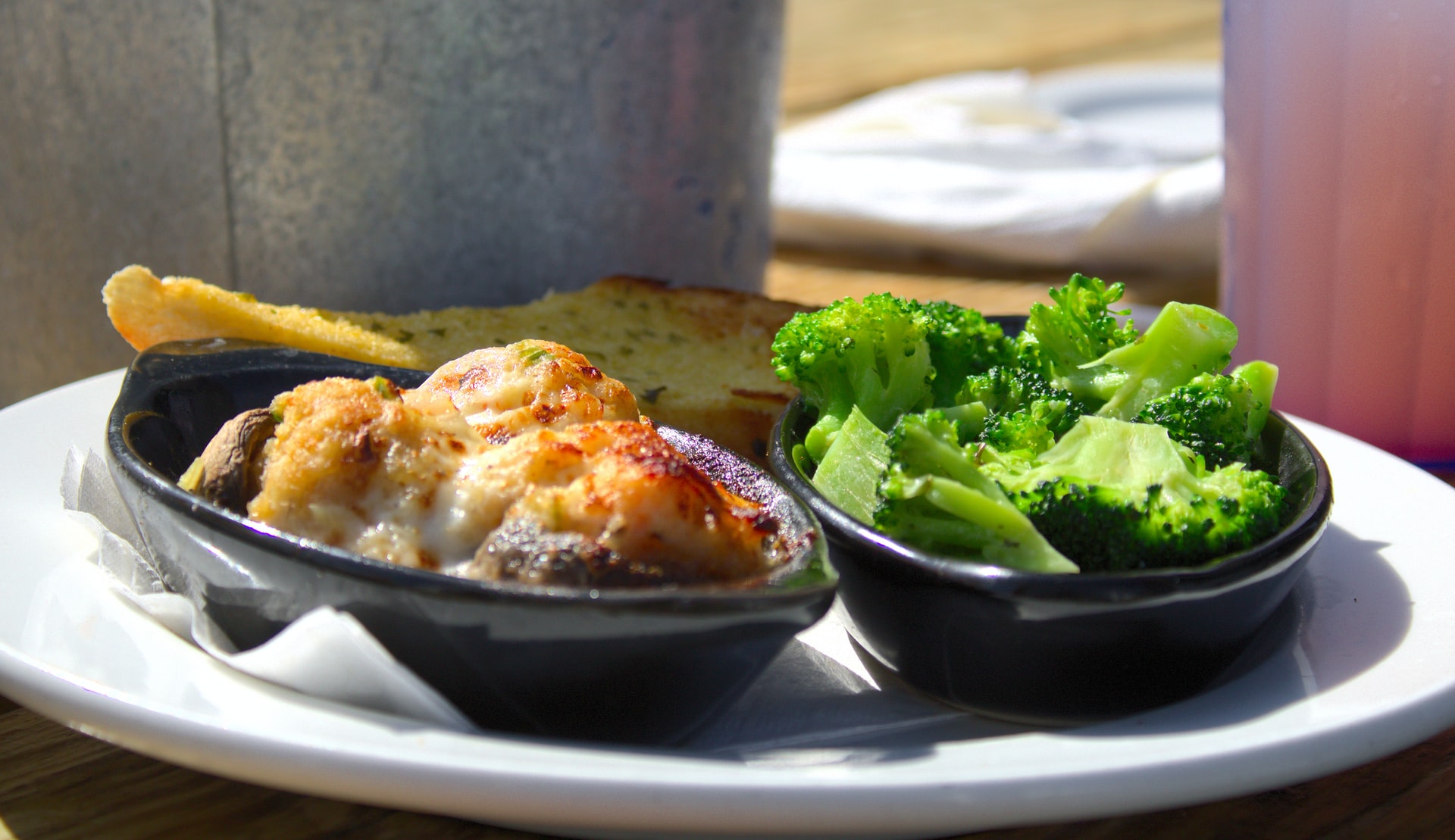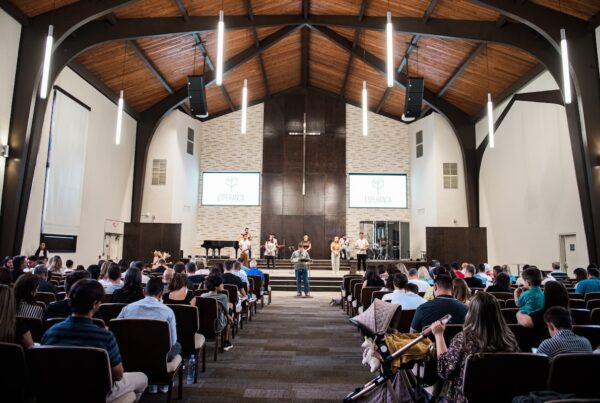Like most people, I love a good meal. While a lot goes into a great food experience (ambiance, decor, service), the entrée is most important. A meal is only as good as the main course. If you go to a steakhouse and the waiter brings out a plate with fourteen ounces of asparagus, a pound of mashed potatoes, and only two ounces of meat, you’ll likely leave unsatisfied. A side dish should never take up more of the plate than the entrée.
What’s Filling You Up?
If we aren’t careful, we can drift into a side dish way of living. Side dish Christianity is filling up our plate with the pleasures and priorities of this world and relegating God to the outskirts. When you look, sound, and act like a Christian on Sunday but not Monday through Saturday, you’re in danger of side dish Christianity.
When you profess Jesus with your mouth, but your thinking and decisions are primarily influenced by your feelings or pop psychology, you’re in danger of side dish Christianity. If governmental or denominational politics occupy more of your heart and mind than the Scriptures, you’re in danger of side dish Christianity.When you look, sound, and act like a Christian on Sunday but not Monday through Saturday, you’re in danger of side dish Christianity. Click To Tweet
How does this happen? When you find your peace, comfort, joy, satisfaction, safety, security, refuge, or identity in something other than God, he automatically becomes less important. When you no longer feast on him, you will find other entrées to “enjoy.”
How do we avoid side dish Christianity? We allow the Bible to shape every aspect of our life. We can learn from both the Old and New Testaments in this endeavor.
Lessons from the Old Testament
It’s not uncommon to hear pastors talk about how Christ has freed us from the obligations of the old covenant. However, I wonder if, in our passion for upholding the beauty and freedom we find in Christ, we miss the beauty and wisdom of a particular way of life found in the pages of the Old Testament.
One of the first things I notice when reading Exodus through Deuteronomy is the stark difference between how my life looks and the life of post-exodus Israel. It’s easy (and right) to read through the pages of the Torah and feel gratitude in and to Christ. We’re no longer bound by the rules, regulations, feasts, and festivals that can’t ultimately produce salvation.
But when I look a little closer, I see something else. I have to fight every day for what was baked into Israel’s culture: a God-centered way of life. Certainly, there were distractions (like idolatry) and sin (like self-righteousness), but the structure of the Old Testament way of life was clearly centered on the Lord.I have to fight every day for what was baked into Israel’s culture: a God-centered way of life. Click To Tweet
For Israel, to feast on God was to choose life. To feast on something else and treat God like a side dish was to choose death. From an earthly perspective, this seems extreme. But we need more of this perspective in our daily life, not less. The enemy of your soul would love nothing more than for you to believe that this world can satisfy the longings of your heart.
Lessons from the New Testament
It’s not like the New Testament departs from the idea of a God-oriented life. All of the Old Testament practices and rhythms find their fulfillment in Christ. Jesus is meant to be at the forefront of our minds and the center of our hearts. Here are some examples:
“I have been crucified with Christ. It is no longer I who live, but Christ who lives in me. And the life I now live in the flesh I live by faith in the Son of God, who loved me and gave himself for me” (Gal. 2:20).
“For me to live is Christ, and to die is gain” (Phil. 1:21).
“So whether we are at home or away, we make it our aim to please him” (2 Cor. 5:9).
“Set your minds on things above, not on things that are on earth. For you have died, and your life is hidden with Christ in God. When Christ who is your life appears, then you also will appear with him in glory” (Col. 3:2–4).
Belonging to God should shape our desires, beliefs, thoughts, words, and deeds. Side dish Christianity, by contrast, allows the perspectives and priorities of the world to fill up our plate.
Paul warns us of the danger of this kind of living: “For many, of whom I have often told you and now tell you even with tears, walk as enemies of the cross of Christ. Their end is destruction, their god is their belly, and they glory in their shame, with minds set on earthly things” (Phil. 3:18–19). When we fill up our plates and feast on anything other than Jesus, we die. Belonging to God should shape our desires, beliefs, thoughts, words, and deeds. Side dish Christianity, by contrast, allows the perspectives and priorities of the world to fill up our plate. Click To Tweet
Filling Up on the Word
We guard ourselves against side dish Christianity by filling up on God’s Word. Psalm 34 extends an invitation to “taste and see that the Lord is good” (v. 8). But if you don’t taste, you will never experience the good God has to offer.
When you’re fearful, fill up on the promise of God’s sovereignty. When you’re lonely, fill up on the promise of God’s presence in you. When you despair, fill up on the promise of God’s goodness to you in Christ. Christian, your soul is starving for the Word of God. Go feed it.










